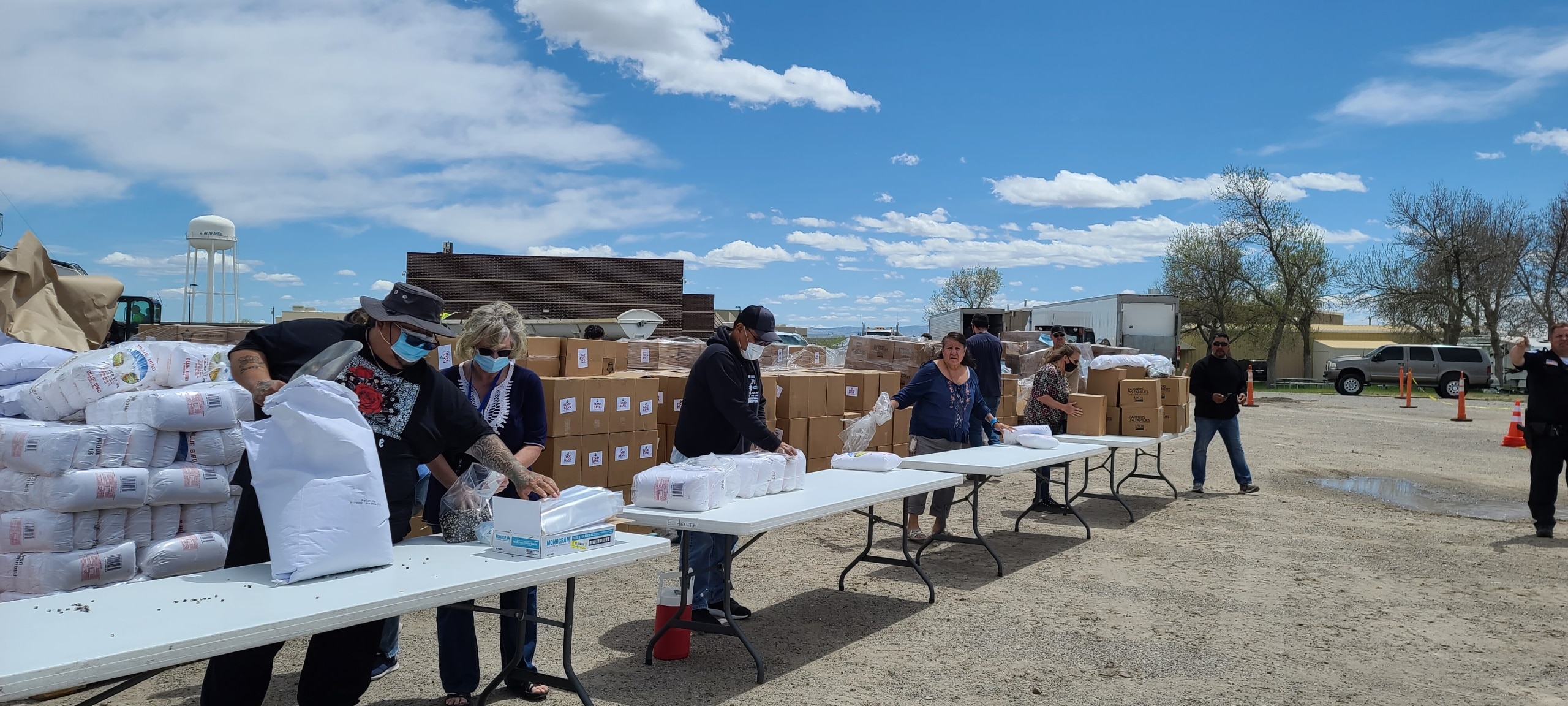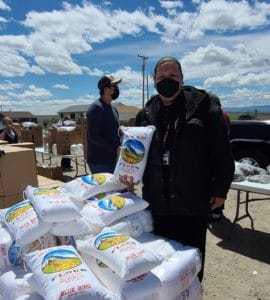
As the 10th largest and least populated state in the nation, Wyoming is a land of striking landscapes, scattered communities, and high rates of food insecurity. The latter is particularly true for the Eastern Shoshone and Northern Arapaho people living on the Wind River Indian Reservation.
The reservation stretches across 3,532 square miles of land (nearly twice the size of Delaware), on which places to shop for food are scarce and separated by many, many miles. Compounding these already large challenges is the fact that many residents lack access to reliable transportation—or any transportation at all—yet simultaneously have multigenerational households to support.
To help bridge this divide, as well as those present across all of Food Bank of the Rockies’ territory, we applied for and received a grant from Feeding America to launch the Culturally Responsive Food Initiative pilot project. Food access is “a need, not a want,” said Jacqueline White, tribal outreach consultant for the program, and through the project we’re able to actively meet that need.
Addressing Food Insecurity with Culturally Relevant, Nutritious Options
Aimed at connecting people with food choices that are in line with their culture, the Culturally Responsive Food Initiative sent outreach consultants to the areas we serve to collect feedback about food preferences from clients. On the Wind River Indian Reservation, Jacqueline and her team conducted surveys among members of the Northern Arapaho to share with Food Bank of Wyoming’s food sourcing department so that culturally responsive food offerings could be included in future distributions.

Once the data was collected, Food Bank of Wyoming worked to source and deliver the selected food items to the corresponding tribes and communities that requested them. A critical first step toward doing this on the Wind River Indian Reservation involved establishing monthly, drive-through pantries dedicated to the separate tribes. Through these pantries, more than 2,000 people are served every month. Jacqueline said she has already seen blueberries, standing in for chokecherries, along with meat and fresh produce in the boxes. “It’s a great blessing, especially the fresh vegetables.”
Response from clients has been equally enthusiastic. “I loved that [Food Bank of Wyoming] understands the importance of bluebird flour and blue corn to our people,” said Teresa His Chase. “Also, distributing the food at the school shows how committed everyone is to making it accessible to our community, including our students, families, and elders. The specialty items are appreciated and are a direct connection to our way of life and culture.”
The program has helped establish a relationship between Food Bank of Wyoming and Tribal Leaders on the Wind River Indian Reservation, including the Northern Arapaho Business Council and the Eastern Shoshone Business Council. With their guidance and help, the initiative is also creating culturally respectful solutions for addressing food insecurity within their communities.
Looking Ahead

Immediate future goals for the Culturally Responsive Food Initiative on the Wind River Reservation include determining permanent partnerships with the Northern Arapaho
and Eastern Shoshone tribes for hosting storage facilities where food can be distributed to each tribe and their community members on a regular basis. The Northern Arapaho Business Council Tribal Leaders have also been volunteering at the mobile pantries and, as Jacqueline said, support the Culturally Responsive Food Initiative “110 percent.”
“It’s what we do to nourish our neighbors; food is a major component of cultural identity, and specific foods carry specific cultural meanings that resonate,” said Tony Woodell,director at Food Bank of Wyoming. “Food Bank of Wyoming is committed to this initiative because we believe that culturally responsive food supports communities in sustaining their cultural integrity while accessing nutrition.”
Jacqueline has already seen the impact on the community. “There is always someone stopping and thanking me,” she said. “We can work together collaboratively to help our tribal members.”
Feeding America is the nation’s largest domestic hunger-relief organization with a network of 200 member food banks across the country. The COVID-19 Response Fund helps food banks across the country as they serve the most vulnerable members of the community during this difficult time. The Culturally Responsive Food Initiative was made possible through a generous grant from Feeding America.



